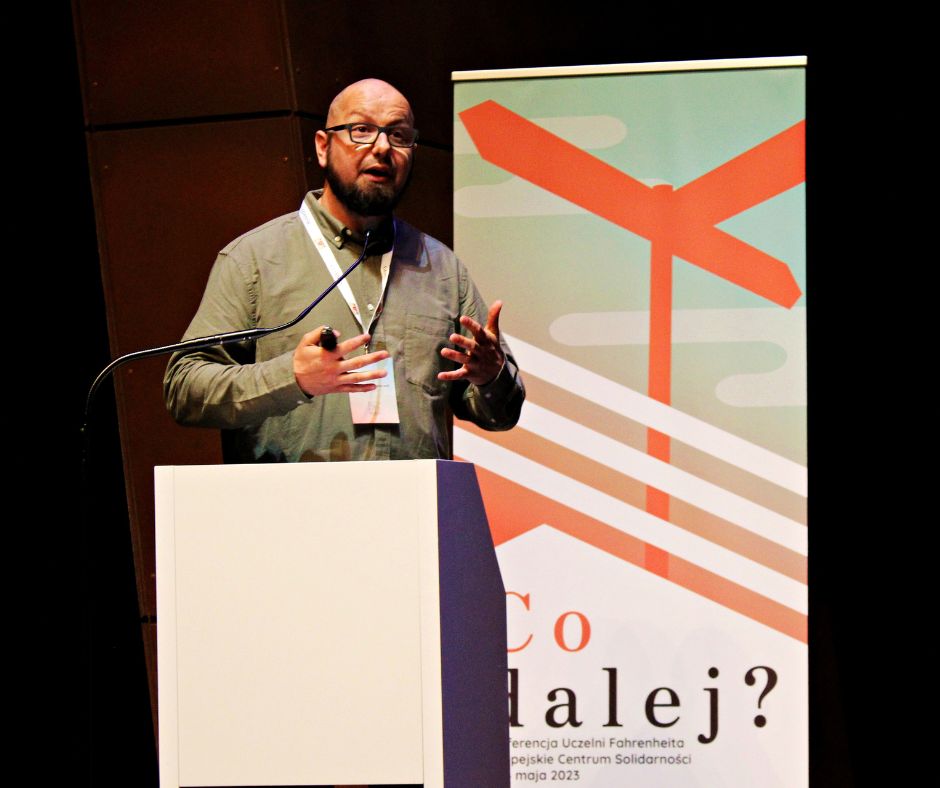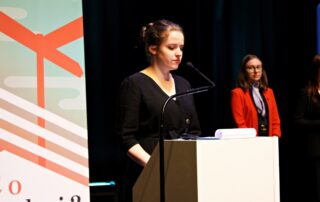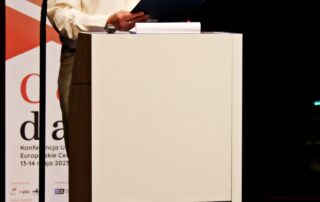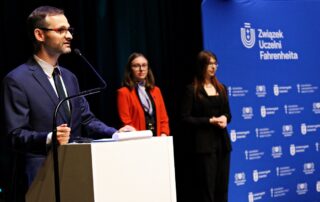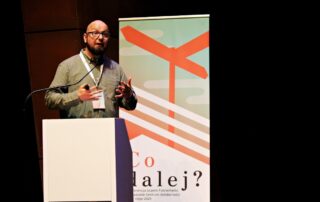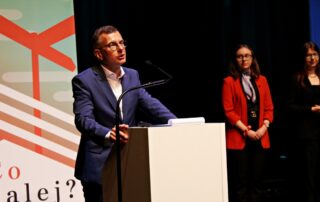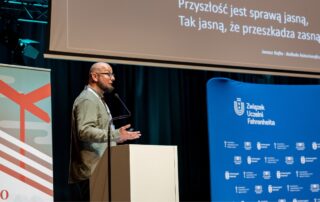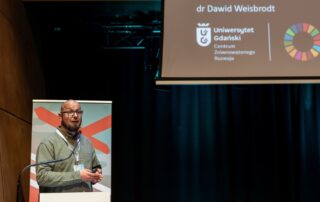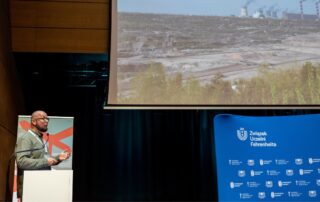– By the time we all feel that climate change is affecting us, it will be too late,” said Dawid Weisbrodt, PhD, during the first day of the “Co dalej?” (what’s next?) conference on Saturday 13 May at the European Solidarity Centre. The two-day event, organised by students of the Fahrenheit University, was an opportunity to try to answer the title question in the context of pandemics, global warming, the war in Ukraine or… space travel.
Photo. Naukowe Koło Fotografów UG
Students scientific Associations of the Medical University of Gdańsk (SKN Psychologii GUMed), the University of Gdańsk (Inspiar) and the Gdańsk University of Technology (KNIDiO) undertook a scientific and social project – the “Co dalej?” conference co-financed by the Fahrenheit Universities. For two days, on Saturday and Sunday 13-14 May, students, academics and residents of the Tricity participated in lectures, debates and workshops on, among other things, nature conservation, the creation of friendly urban space, but also issues related to mental health or intimacy.
The assembled guests were welcomed by Prof. Adriana Zaleska-Medynska, Eng, Director of the Fahrenheit Union of Universities in Gdańsk. Prof. Marcin Gruchała, Rector of the Medical University of Gdańsk, also spoke at the opening of the conference. The conference participants were welcomed on behalf of the European Solidarity Centre by Konrad Knoch, PhD, Deputy Director of the Institute of Media, Journalism and Social Communication of the Faculty of Social Sciences at the University of Gdańsk.
Krzysztof Szczepaniak, PhD, Director of the Centre for Sustainable Development at the University of Gdansk, also attended the conference.
The opening lecture “The collapse of the Anthropocene?” was presented by Dawid Weisbrodt, PhD, from the Department of Geomorphology and Quaternary Geology of the Faculty of Oceanography and Geography of UG, coordinator of the Education for Sustainable Development programme at the UG Centre for Sustainable Development.
“Where we are, climate change is not so big that it gives the average person pause for thought. Please remember, by the time we all have a sense that this is affecting us, it will be too late,” said Dawid Weisbrodt, PhD.
The scope and scale of human activity on a global scale has grown exponentially since the mid-20th century, the scientist said. The environment is increasingly under threat.
“Whether we are looking at socio-economic issues or planetary system issues, everywhere we see a huge increase in human pressure on the environment. Whether it is the increase in carbon dioxide levels or issues related to biodiversity loss and species extinction, everywhere, everything is very different from what it was before the Second World War,” the researcher stressed.
Dawid Weisbrodt, PhD, also presented the effects of climate change in his own photographs, which he took in various places in Poland. Participants were able to see how forests in the Tatra National Park and in Kashubia had been destroyed as a result of, among other things, tornadoes and other extreme weather events.
“Environmental change is not linear. We have so-called tipping points, or breakpoints, beyond which ecosystems do not return to equilibrium. Our biosphere, soils, biodiversity have a huge possibility to regenerate, but only to a certain extent,” the scientist warned.
The CZRUG website will soon feature an e-exhibition by Dr David Weisbrodt entitled. “ANTROPOCEN – how man dominated the world in seven decades”. In turn, on 28 May, the Fahrenheit Science Picnic on Gradowa Mountain will feature the exhibition on boards in the chill-out zone, in front of the Artillery Carriage House Building.
The ‘Co dalej?’ conference project won third place in the ‘Fahrenheit Collaboration Champions’ competition organised by the Association of Fahrenheit Universities in Gdansk.


